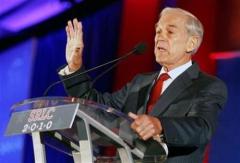Greek Economy Getting into a Deeper Hole
April 24, 2012
By GEORGE GEORGIOPOULOS | REUTERS | APRIL 24, 2012
Greek GDP to slump 5 pct in 2012. Current account gap to shrink to 7.5 pct of GDP. Inflation seen at 1.2 pct in 2012. Strict adherence to reforms urged.
Greece’s economy will contract a deeper than expected 5 percent this year, the country’s central bank chief said on Tuesday, piling more pressure on to a citizenry already battered by crippling austerity and record joblessness.
The projection topped a previous forecast the central bank made in March, when it projected the 215 billion euro economy would contract 4.5 percent after a 6.9 percent slump in 2011.
Twice bailed-out Greece is in its fifth consecutive year of recession.
Speaking to shareholders at the central bank’s annual assembly, George Provopoulos, also a European Central Bank Governing Council member, urged strict adherence to reform and fiscal adjustment commitments Greece has agreed with its euro zone partners, saying they were needed to return the economy to sustainable growth.
Athens is under pressure to apply more fiscal austerity to shore up its finances as part of a new rescue package agreed this year with its euro zone partners and the International Monetary Fund (IMF) to avert a chaotic default.
Its continued funding under the 130 billion euro package will hinge on meeting targets.
Provopoulos warned that Greece’s euro zone membership was at stake if it failed to follow through on its pledges, especially after national elections next month.
“If following the election doubts emerge about the new government and society’s will to implement the programme, the current favourable prospects will reverse,” he said.
Greece is set to pick a new government on May 6, with the two main parties in the current coalition seen barely securing a majority in parliament, according to the latest opinion polls.
Whoever wins will have to agree additional spending cuts of 5.5 percent of GDP, or worth about 11 billion euros for 2013-2014, and gather about another 3 billion from better tax collection to keep getting aid, the IMF has said.
IMPROVING COMPETITIVENESS
The central banker projected Greece’s current account gap, a key indicator reflecting eroded economic competitiveness, would shrink to 7.5 percent of gross domestic product (GDP) this year from 9.8 percent in 2011. In March the central bank forecast the gap would drop to 7 percent of GDP this year.
“The expected drop in unit labour costs in 2012-13, coupled with the projected price trends will lead to a marked improvement in competitiveness, contributing to a rise in exports and import substitution,” he said.
Consumer inflation is seen slowing to 1.2 percent this year and may fall below 0.5 percent in 2013. Weak domestic demand combined with downward wage pressures have shrunk the country’s inflation differential with other euro zone states.
The central bank estimates that by the end of this year the economy will have regained up to three quarters of competitiveness lost during 2001-09. Greece joined the euro in 2001 and enjoyed a consumption boom on lower borrowing costs.
Provopoulos said the fiscal shortfall had come down markedly but remained high. Last year Greece shrank its budget gap by 1.2 percentage points to 9.1 percent of GDP and aims for a 6.7 percent deficit this year.
Austerity measures including income and property tax increases, a rise in value-added tax rates and cuts in wages and pensions, helped reduce the gap from 15.6 percent of GDP in 2009, when its debt crisis erupted.
“The sought attainment of primary surpluses from 2013 is now achievable,” the central banker said.
Provopoulos also said private sector bank deposits had declined by more than 70 billion euros since the end of 2009, a sum equivalent to about one third of the country’s GDP, in a blow to the banking sector’s lending capacity.



